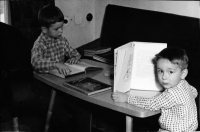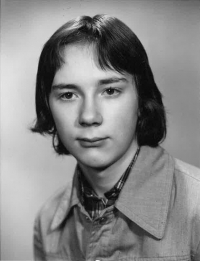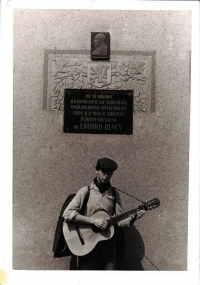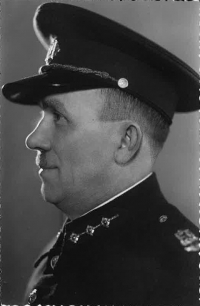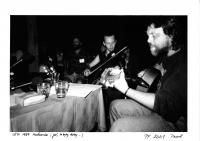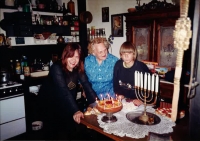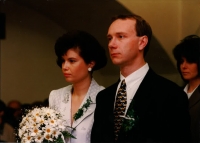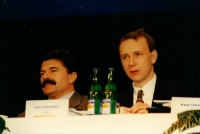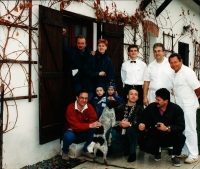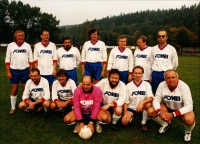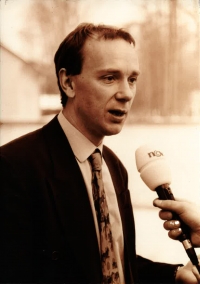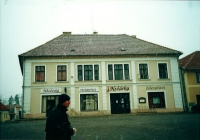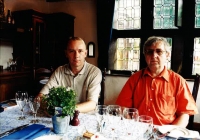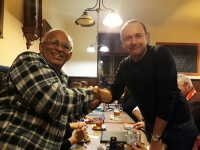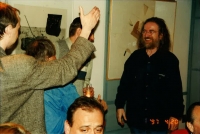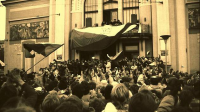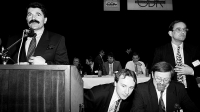I am very happy that I had the opportunity to experience these events also in an active role
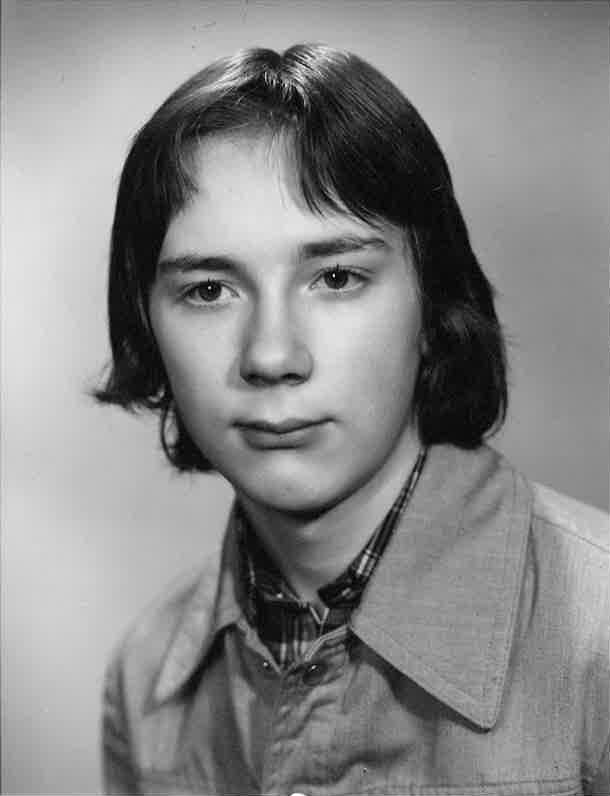
Download image
Libor Kudláček was born on July 18, 1957 in Pardubice as the second son in the family of the clerk Slavomír Kudláček and his wife Marie. As an eleven-year-old, he took part in protests with his friends after the Warsaw Pact invasion in 1968. He graduated from a secondary grammar school and then studied geography at Charles University. In college and after, he played in several music bands and was in contact with people outside the official cultural sphere. After completing his compulsory military service with the tank battalion, he joined Stavoprojekt in Hradec Králové. At the end of the 1980s, he took part in anti-regime demonstrations, maintained contacts with the dissent and in November 1989 he took part in the establishment of the Civic Forum in Pardubice. At the end of 1989, as part of the co-optations, he joined the House of People of the Federal Assembly and took the parliamentary pledge. He also defended his mandate in the first free elections in 1990. He was a member of the Budget and Economic Committee, he experienced the birth of restitution and a market economy. In 1991, he joined the Civic Democratic Alliance, where he remained until his departure from politics in 1998. He founded the company Euroffice Prague - Brussels, which he still runs today.
